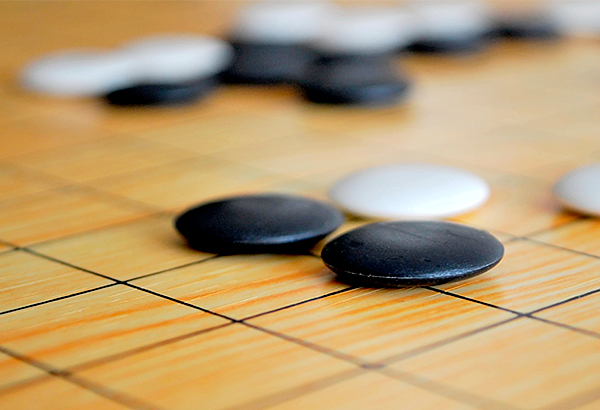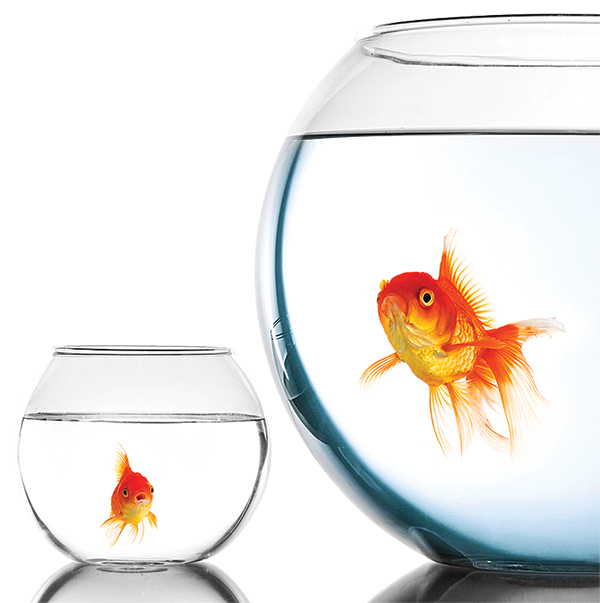
Photo Credit: Thinkstock
Computer masters world's hardest board game
Mark another victory for artificial intelligence. A team of computing scientists at Google DeepMind - led by David Silver, '09 PhD, and former U of A post-doctorate fellow Aja Huang - has used artificial intelligence to beat human masters of the complicated Chinese board game Go.
DeepMind's AlphaGo program was able to defeat one of the world's best professional Go players four games to one in March. Go has long been viewed as the most challenging game for artificial intelligence because of the enormous number of possible board configurations.
The victory highlighted the remarkable way AlphaGo was able to teach itself to become a better player, even since defeating the European Go champ a few months earlier. The program, which has played millions of games against itself, learns new strategies through a trial-and-error process DeepMind calls "reinforcement learning." The underlying technology is general enough that real-world applications could include climate modelling and disease analysis, according to Google DeepMind.
- Forbes
Editor's note: Murray Campbell, '79 BSc (Hons), '81 MSc, played a central role in another historic AI feat. He was one of the three scientists who created Deep Blue, the IBM computer that beat world chess champion Garry Kasparov in 1997.

Living Next to Lottery Winners Could Be Losing Bet
If your neighbour wins the lottery, you could be at risk of bankruptcy.
A study about inequality and financial distress co-authored by U of A business professor Barry Scholnick found a higher number of bankruptcies among households living near someone who won a lottery jackpot.
The study's authors theorize that neighbours of the instant rich feel pressured to "keep up with the Joneses" and accumulate conspicuous assets such as cars, sometimes going deep into debt to do so.
The study used postal codes in an unnamed province to analyze lottery winners and bankruptcy filings over 10 years. It found that for every $1,000 increase in the lottery prize, there was a 2.4 per cent increase in bankruptcy filings by the winners' neighbours over the next few years. The results were more pronounced for low-income neighbourhoods and areas with high income inequality.
The research contributes to data on income inequality and financial disaster, as well as the economic and social effects of sudden income windfalls.
-The New York Post
Students Serve Latest Scoop on Dairy-Free Gelato
Three students are turning heads and waking up appetites with a gelato that is healthier, dairy-free and lower in calories than the conventional recipe.
How? All three flavours of BiotaGelata gelato - maple walnut, passionfruit and dark chocolate cassis - are made by replacing the milk with fermented beans.
Nutrition and food science students Nicolle Mah, Austen Neil and Chandre Van De Merwe concocted the treat for Pulse Canada's Mission ImPULSEible competition, which challenged post-secondary students to create a food product using pulse crops, including peas, beans, chickpeas and lentils.
Although BiotaGelata placed second, the judges were so impressed they paid for the students to attend the Institute of Food Technologists food expo in Chicago this summer, one of the largest food industry expos in the world.
-CBC
We at New Trail welcome your comments. Robust debate and criticism are encouraged, provided it is respectful. We reserve the right to reject comments, images or links that attack ethnicity, nationality, religion, gender or sexual orientation; that include offensive language, threats, spam; are fraudulent or defamatory; infringe on copyright or trademarks; and that just generally aren’t very nice. Discussion is monitored and violation of these guidelines will result in comments being disabled.